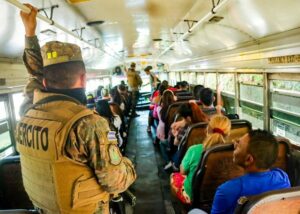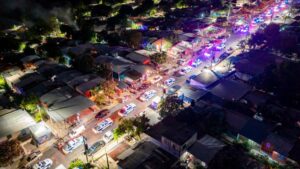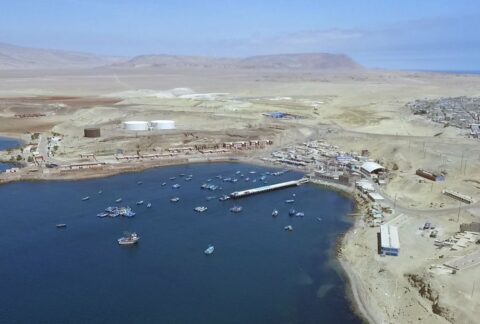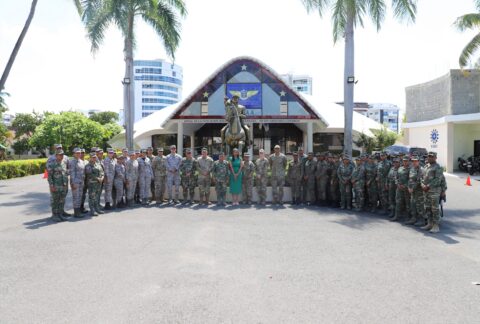The government of El Salvador has activated phase five of its Territorial Control Plan security strategy, called Extraction, deploying police and military forces to surround cities and contain gang activity.
“In the first place, we must understand that the extraction phase implies an earlier intelligence phase to go to specific points where they had not hit before,” Misael Rivas Soriano, a Salvadoran lawyer and security expert, told Diálogo on December 18, 2022. “The extraction groups in this phase were not considered in the state of emergency.”

“What we are going to do is to surround large cities and carry out the extraction process of the terrorists that are inside […], without giving them the ability to escape because you will have them surrounded,” said Salvadoran President Nayib Bukele, during the launch of the measure in November 2022. “If they want to escape or someone wants to supply them with weapons, food, ammunition, pay […] or anything they use to intimidate the population, you [the police and military] are going to intercept them, both the criminals and their accomplices.”
Soyapango was the first city in which security forces intervened, east of the capital and one of the areas most plagued by crime and gangs. The Salvadoran Armed Forces (FAES) and the National Civil Police (PNC) surrounded the municipality with 8,500 soldiers and 1,500 agents during the early hours of December 3, the Ministry of Justice and Public Security said in a statement.
For security reasons, the government has not provided the names of the cities where operations will be carried out next. A state of emergency has been in place since March, in which authorities arrested 59,307 people linked to criminal groups. According to the Salvadoran government, as of December 8, 264 days went by without homicides, demonstrating the success of the strategy.
During the implementation of the security siege in Soyapango, 40 extraction points were identified, where authorities registered the highest concentration of gang members, Salvadoran Navy Vice Admiral and Defense Minister René Merino said. “In the previous phases, with the state of emergency, we were able to remove gang members who were massively present in those places and who didn’t hide and acted freely in these areas as they were empowered and had control of the territories,” Vice Adm. Merino told Salvadoran TV program Diálogo con Ernesto López. “With 120 people killed, it is not a simple terrorist organization that we confronted.”

The Salvadoran Security Cabinet states that there are 15 command posts in the Mara Salvatrucha (MS13). On December 8, authorities announced the capture of Eduardo Pérez, alias Scooby, leader of the MS13’s 10th command post and among those responsible for the spike in homicides in March and thousands of other murders in recent years, Villatoro said.
The Territorial Control Plan was launched in June 2019, as a comprehensive security strategy to stem the crime wave caused by gangs and other criminal groups. To date, four phases have been completed: Preparation, exercising control of territories and repressing crime; Opportunities, focused on generating opportunities for young people and preventing violence; Modernization, to provide new equipment and technology to security forces; and Incursion, where authorities sought to regain territories from gangs, Salvadoran daily El Mundo reported.








